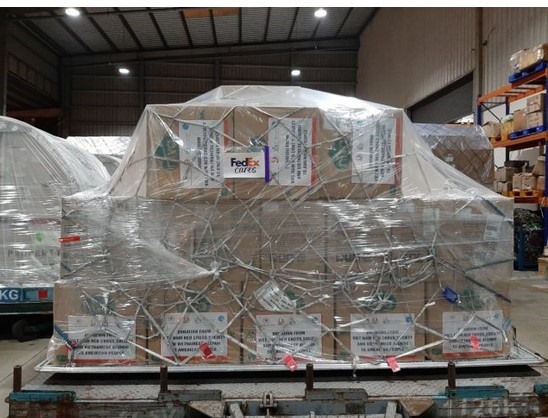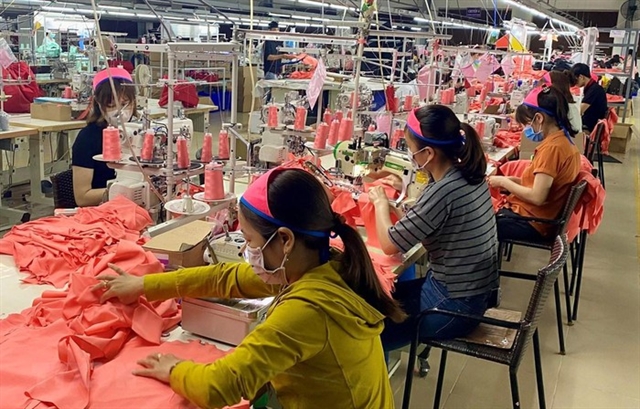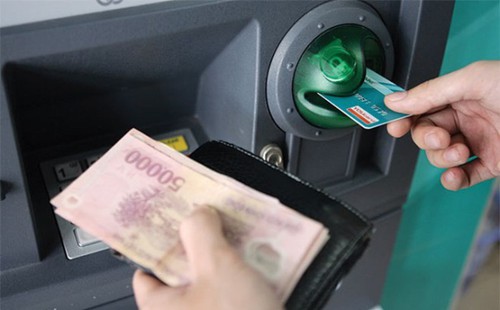
HÀ NỘI — Simplifying administrative procedures is critical to revitalising business after the COVID-19 pandemic.
This was one of the key points discussed at a conference held in Hà Nội on Tuesday titled “Recommendations for Regulatory, Policy, and Administrative Procedure Reforms to Support Post-COVID-19 Business Recovery”.
The event was co-organised by the PM’s Advisory Council for Administrative Procedure Reform (ACAPR) in collaboration with the Việt Nam Association of Small and Medium Enterprises (VinaSME) and the United States Agency for International Development (USAID).
Nearly 86 per cent of more than 126,500 surveyed enterprises nationwide have been affected by the pandemic, according to the Ministry of Planning and Investment.
Among those surveyed, the construction and service sector recorded the highest rate of casualties, accounting for 86.1 per cent and 85.9 per cent respectively, followed by agriculture, forestry and fishery sectors with 78.7 per cent.
The sector whose almost 100 per cent of enterprises hurt by the pandemic was aviation. The rate for accommodation services was 97.1 per cent, food and beverage 95.5 per cent, travel agents 95.7 per cent and education and training 94 per cent.
Regarding regions, the Red River Delta and the central regions recorded the highest rates of suffering enterprises.
Nearly 60 per cent businesses said the consumption market had dropped sharply, 47 per cent of enterprises with export activities said that goods produced could not be shipped overseas.
“The volatile, uncertain, and complex conditions caused by the COVID-19 pandemic has negatively affected the social and economic realities of many countries across the world, including Việt Nam,” said Minister, Chairman of the Government Office and Chairman of the Prime Minister’s Advisory Council for Administrative Procedure Reform Mai Tiến Dũng.
“As a country with significant global integration, the COVID-19 pandemic has negatively affected many sectors and areas of Việt Nam’s economy. As a result, Việt Nam’s Gross Domestic Product Growth Rate in the first quarter of 2020 was only 3.82 per cent. Even though this figure is the highest in the region, it is a much lower compared to the same period last year and the lowest growth rate Việt Nam has experienced since 2011,” Dũng said.
“In order to quickly respond to the impact of the pandemic as well as help enterprises overcome difficulties, the Government and the Prime Minister have directed the implementation of multiple measures to remove difficulties for production and business, ensuring food security and promote disbursement of public investment capital to ensure social security,” Dũng said.
“Among the measures, the most focused were the simplification of administrative procedures, the cut of business conditions, the reduction of categories of goods and products subject to specialised inspections and the application of digitalisation in state agency operation.”
From the beginning of its tenure in 2016, the Government has reduced and simplified 3,893 out of 6,191 business conditions, cut 6,776 out of 9,926 categories of goods and products subject to specialised inspections and 30 out of 120 administrative procedures for specialised inspection. The total social saving was estimated at 18 million working days per year, equivalent to more than VNĐ6.3 trillion per year (US$270 million).
A portal called “The National Public Service Portal” has been in operation for nearly six months with 408 online public services launched, of which 170 were public services for people and 238 were public services for businesses, Dũng said.
More than 1000 people participated in the conference, including representatives from relevant ministries, government agencies, business associations and enterprises, leading economists.
Nineteen provinces and cities across Việt Nam also virtually participated in the conference, including Đà Nẵng, HCM City, Cần Thơ, Bình Dương, Hải Phòng, Quảng Ninh and Ninh Bình.
Nguyễn Kim Hùng, Chairman of the Board of Kim Nam Group told Việt Nam News the SMEs community is in need of a digital-based trading platform.
“Digital transformation and technology application has been widely discussed as a critical imperative for enterprises in the era of Industry 4.0,” Hùng said.
“However, few of them can understand properly the concept of ‘digital transformation’. We need to build a digital ecosystem for the business community, enhancing their awareness of digital training and transformation, building an e-commerce site where enterprises can utilise varied digital solutions such as creating selling channel, e-logistics, e-payment and e-signature.”
US assistance
According to USAID/Vietnam Mission Director Michael Greene, the COVID-19 pandemic has devastated the global economy and businesses are struggling to restore their momentum.
The US and Việt Nam had worked closely against COVID-19 and the US Government committed to provide $9.5 million, through USAID programmes, to support Việt Nam's initiatives in supporting businesses, especially the SMEs who were most heavily affected group in the pandemic.
USAID-funded Linkages for Small and Medium Enterprises (LinkSME) has co-operated with Việt Nam’s Government to promote institutional reform, streamlining regulations and administrative procedures, improving government-to-business interactions and enhancing SMEs integration into international supply chains. — VNS































